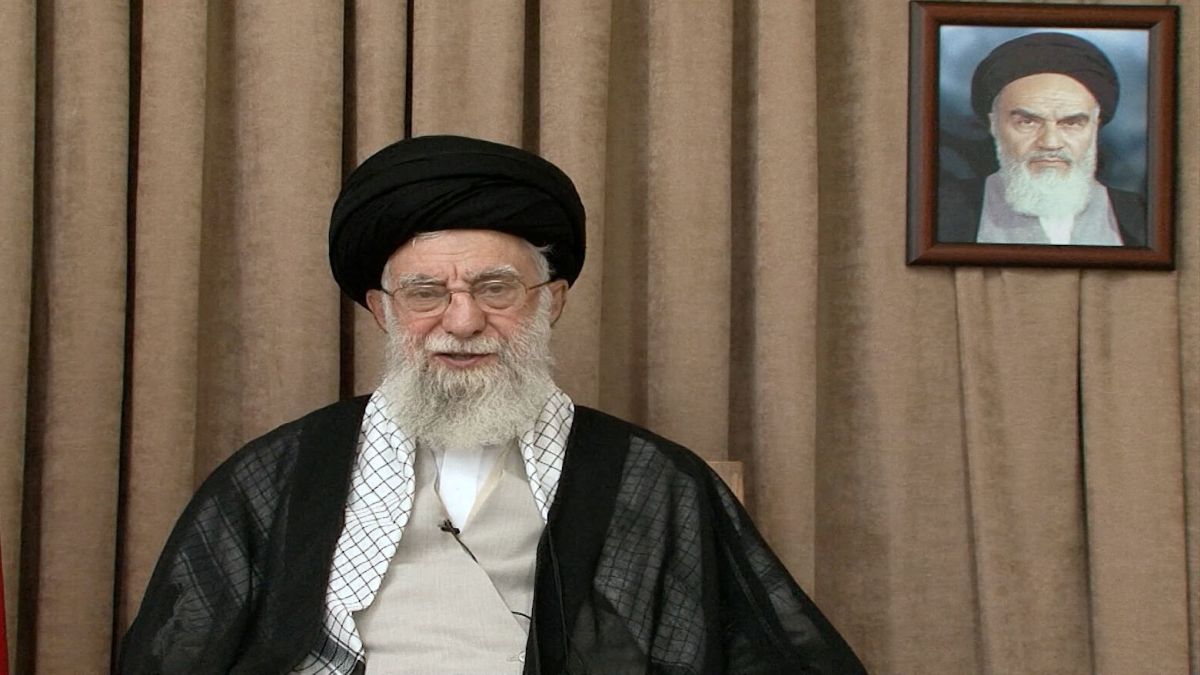Despite public denials, senior Iranian officials are quietly signaling their willingness to resume nuclear negotiations with the Trump administration. However, as with all critical decisions in the Islamic Republic, the ultimate authority rests with Supreme Leader Ayatollah Ali Khamenei . A source familiar with the matter told The Jerusalem Post that Iran’s leadership has indicated a readiness to talk, but they are still awaiting a green light from Khamenei.
It remains unclear whether Khamenei is deliberately holding back his approval or if communication difficulties are contributing to the delay. Some reports suggest that Khamenei has retreated to a secure underground location — an apparent wartime measure—that has hampered contact with top officials.
Khamenei previously blocked key talks
Journalist Barak Ravid recently reported that Khamenei previously blocked attempts by Iran’s foreign minister to engage with US special envoy Steve Witkoff and Vice President JD Vance. That obstruction, during the recent conflict, was a decisive factor in US President Donald Trump ’s choice to strike Iran’s nuclear facilities.
A deal is still on the table
Despite the tensions and military strikes between Iran, Israel, and the US, efforts to bring Tehran back to the negotiating table are ongoing. Trump administration officials have floated a range of proposals — some highly ambitious — including potentially allowing Iran to access up to $30 billion for a civilian nuclear energy program.
The proposals are contingent on a firm, non-negotiable condition: zero uranium enrichment by Iran. The US insists that any civilian nuclear programme must be powered by imported, not domestically enriched, uranium. This idea mirrors the model followed by the United Arab Emirates.
Secret White House meetings and regional involvement
Much of the recent diplomacy has been conducted in secret. A critical meeting occurred last Friday between US envoy Steve Witkoff and officials from Gulf states at the White House, just one day before the US military launched strikes against Iran.
During this meeting, terms for a revamped Iranian nuclear program were laid out, including a $20–30 billion investment, primarily expected to come from US-aligned Gulf partners, not American taxpayers.
One floated idea involves Gulf states funding the replacement of Iran’s Fordow nuclear facility — recently bombed by the US — with a new non-enrichment energy site. Whether Iran would have access to or control over the facility remains unclear.
Sanctions relief and access to frozen funds
Another incentive under discussion is the removal of select economic sanctions and the unlocking of $6 billion in Iranian assets currently frozen in foreign bank accounts. These financial carrots are part of a broader strategy to draw Iran back into a compliance framework without direct concessions from Washington DC.
Still, reports quoting senior Trump administration officials said these proposals are preliminary and subject to change. The US is not offering unilateral benefits but is open to facilitating peace and long-term stability.
Impact Shorts
More ShortsTrump’s public indifference belies behind-the-scenes diplomacy
In public statements, President Trump has struck a dismissive tone, stating he doesn’t care whether a new deal is signed or not. However, CNN cited sources to say that the administration sees real value in locking down a longer-term nuclear agreement to reinforce the recent ceasefire between Iran and Israel.
Witkoff has echoed similar views in his interviews. He said the US is pursuing a “comprehensive peace agreement” and sees signs that Iran is open to one. He said multiple intermediaries — especially Qatar — are actively facilitating discussions.
Road to a new agreement remains uncertain
While a sixth round of negotiations had been scheduled before Israel’s strikes disrupted talks, no formal date has been set to resume them. President Trump claimed that US-Iran talks might take place next week, though Iranian officials have not confirmed this and sources say the logistics are still being finalised.
Before the recent military escalation, five rounds of preliminary talks had already been held. A proposal from the US was on the table and Iran was expected to respond in Oman — plans which were derailed by the Israeli assault.
Potential turning point or point of no return?
The Trump administration hopes that the recent show of military force will pressure Iran into abandoning its pursuit of nuclear capabilities. However, some experts warn the opposite outcome is just as plausible: that Iran may now double down on its nuclear ambitions out of self-preservation.
In a troubling sign, the Iranian parliament has recently voted to end cooperation with the UN’s nuclear watchdog agency — a move widely interpreted as a signal of Tehran’s intent to further conceal its nuclear activities.
Direct talks are still uncertain
US Secretary of State Marco Rubio reinforced that any future agreement depends on Iran’s willingness to engage in direct negotiations. Still, back-channel communication continues, with Qatar playing a central role in conveying messages and helping maintain the fragile ceasefire. The coming days may determine whether this fragile diplomatic moment yields a new nuclear agreement — or slides into deeper mistrust and confrontation.
)